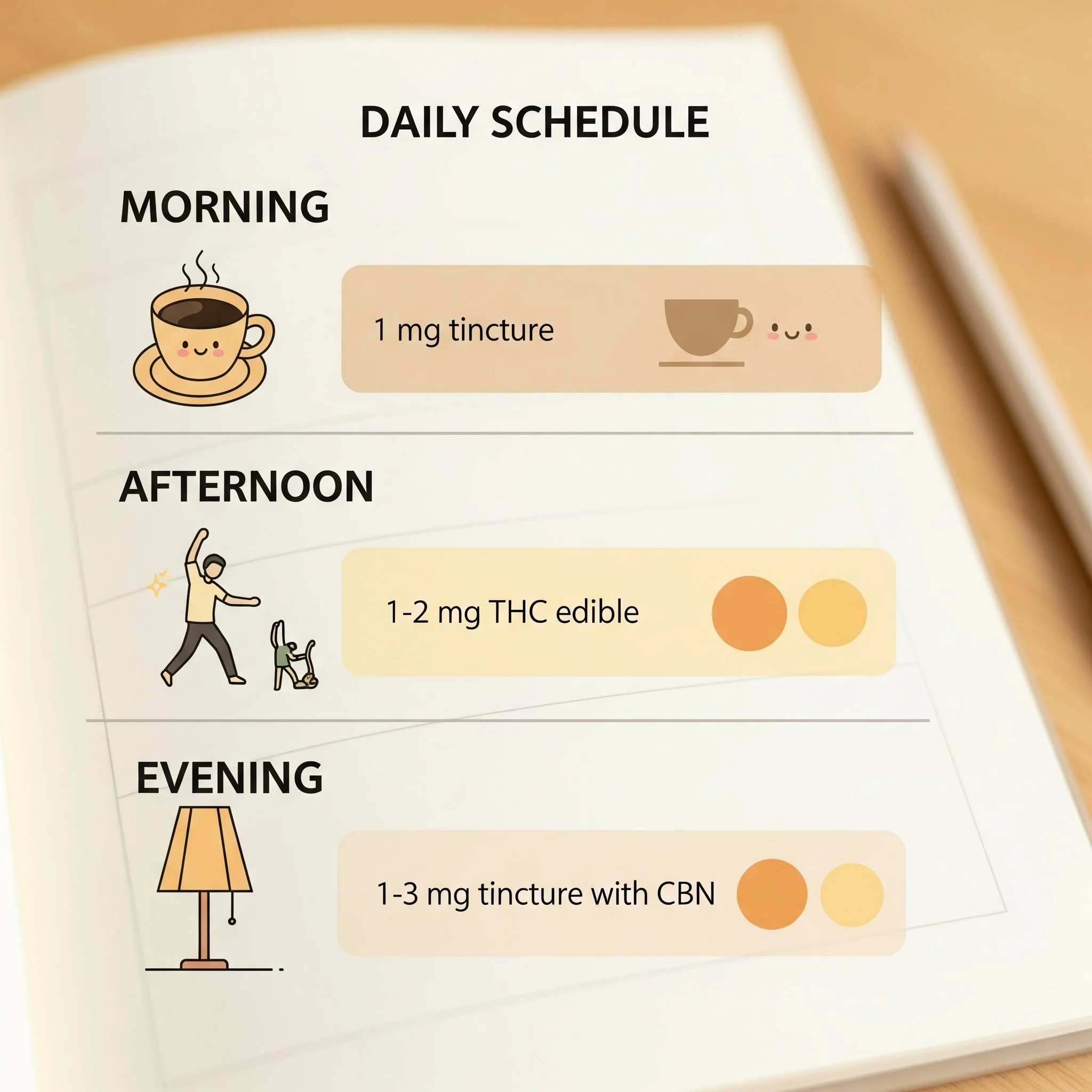Microdosing Marijuana: A Big Win in Small Doses
For many people, the idea of medical marijuana can feel intimidating. I remember my first time talking to a patient about cannabis—they were nervous, asking questions like, “Will I feel high all day?” or “Will I be able to drive my kids to school?” That’s where microdosing comes in. Microdosing is the art of taking tiny, carefully measured amounts of cannabis so you can experience relief without feeling out of control. Think of it like sprinkling just the right amount of seasoning on a dish—it’s effective, subtle, and doesn’t overwhelm.
The science behind microdosing is fascinating. THC, CBD, and other cannabinoids interact with our endocannabinoid system, a kind of internal “balance manager.” Tiny doses can help ease pain, settle anxiety, or support sleep without the heavier psychoactive effects that make some patients hesitate.
Personally, I’ve seen patients who were terrified of cannabis suddenly feel confident after starting with a microdose, tracking their results, and discovering what works for them.
A friend told me she had struggled with chronic pain for years and never imagined she could feel relief during the day without feeling “spacey”—microdosing changed that.
Microdosing can be helpful for a variety of conditions. For chronic pain, starting with just 1–2.5 mg of THC in a tincture or low-dose edible can reduce inflammation and nerve sensitivity without sedation. For anxiety, small amounts of THC combined with CBD can calm racing thoughts; too much THC, however, may increase anxiety, so small doses are key. And for sleep, adding a tiny evening dose—sometimes paired with CBN—can help signal the body to relax and fall asleep naturally, without morning grogginess.
Certain strains are especially friendly for microdosing. Harlequin is a CBD-rich strain that eases pain and anxiety without heavy psychoactive effects. ACDC offers a high CBD, low THC profile, making it perfect for daytime relief and focus. Cannatonic balances THC and CBD for gentle pain relief, while Granddaddy Purple is a heavier indica that works well in small evening doses for sleep support. I always encourage patients to use tinctures or precisely labeled edibles for microdosing—eyeballing a brownie or flower is tricky and easy to overdo.
A simple way to start is to create a schedule, tailored to your condition. For pain, a patient might try 1 mg THC in the morning, another 1 mg mid-afternoon if needed, and an optional 2 mg in the evening.
For anxiety, 1–2 mg THC paired with CBD in the morning and another 1 mg in the afternoon can be enough, with CBD-only doses in the evening. For sleep, a 1–3 mg THC dose 1–2 hours before bed is often sufficient. Keep a journal to track how you feel at each step, because microdosing is about listening to your body and adjusting slowly. Start low, go slow, and let your body guide you.
I’ve personally tried microdosing for sleep during a particularly stressful week, and I was surprised how just a tiny amount helped me relax without feeling groggy the next morning. It’s that subtle, gentle difference that makes microdosing approachable for new patients or older adults who may be cautious. It’s empowering to know you can gain the benefits of medical cannabis without fear of losing your focus, energy, or sense of self.
In the end, microdosing isn’t about chasing a high—it’s about balance, relief, and control. Tiny doses can make a big difference for pain, anxiety, and sleep.
If you’re curious about trying microdosing for yourself, certified providers like Kentucky Cannabis Docs can help guide you through the process, answer questions, and make sure you feel safe and supported every step of the way.
Disclaimer: Kentucky Cannabis Docs (KCD) is not responsible for individual dosing decisions or health outcomes. Always consult a licensed medical provider before starting any cannabis regimen. The information provided here is for entertainment purposes only. Kentucky Cannabis Docs does not prescribe or recommend specific dosing. Dosages mentioned are general starting points for entertainment purposes only. Individual responses vary. Always consult a physician familiar with Kentucky’s medical cannabis laws before adjusting doses. All medical decisions should be made in consultation with a licensed healthcare professional. KCD is not liable for any adverse effects or misuse.



